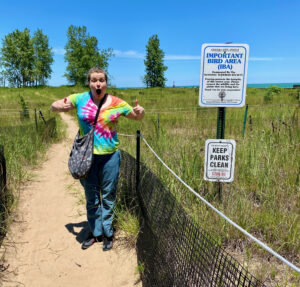
Hi all! I hope you all are having a great summer. This summer went by way too fast for me. I cannot believe it’s almost time to go back to school! I wish I had a little more time to travel and just relax, but I regret nothing about how I spent my summer. Working with the Occupational and Environmental Epidemiology Branch (OEEB) in the Division of Public Health within the North Carolina Department of Health and Human Services (DHHS) has been a wonderful experience. My main work was to write a manuscript on health and climate impacts of traffic-related air pollution to describe the potential health benefits the NC Clean Transportation Plan will bring to people in North Carolina. To do this work, I have read many papers and articles, attended environmental health conference and webinars, and have joined NC Clean Transportation Plan work group meetings. I was given opportunities to be involved in different meeting groups that helped me learn more about air pollution, as well as other environmental health issues in North Carolia that I have not previously paid attention to. Although I was not directly involved in the NC Clean Transportation Plan development, it was very interesting to see how those big state plans are developed. I have learned how multiple stakeholders, such as NC Department of Transportation, NC Department of Environmental Quality, NC DHHS, and many more, work together to develop actionable strategies to improve air quality in North Carolina. It was like seeing everything I have learned in the first year of MPH actually taking place in real life.
During this summer, I was really into this project. Every time I drove, all I thought of were the cars emitting gas exhaustion, the houses near highways, and the lack of electric vehicle related infrastructures. One time, I was driving and talking about these for too long, my husband had to stop me few times. I still have some things to wrap up before this practicum ends. I am at the stage of revising the manuscript and preparing to give presentation on my learnings to people in the OEEB. The work will soon be over, but I will not stop digging up on this topic as I have gained so much interest throughout. Overall, I have had a valuable experience working with NC DHHS. I especially want to thank my preceptor, Dr. Guidry, for being a great support and helping me gain as much experience as I can.
Seowoo



